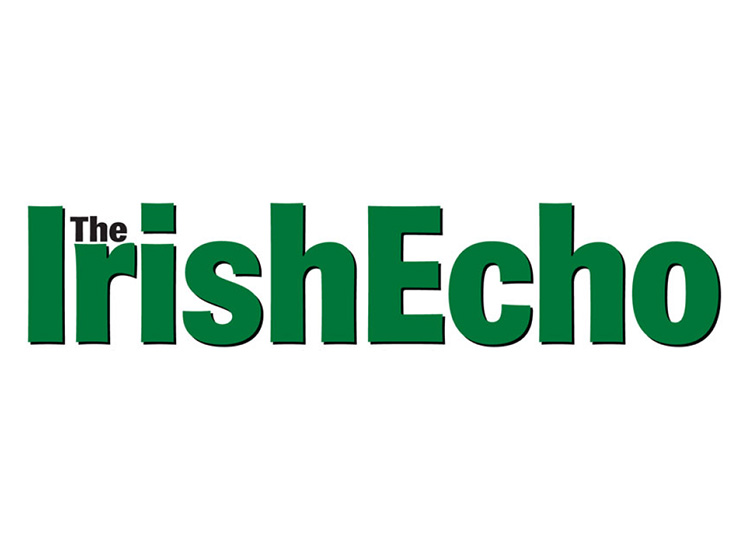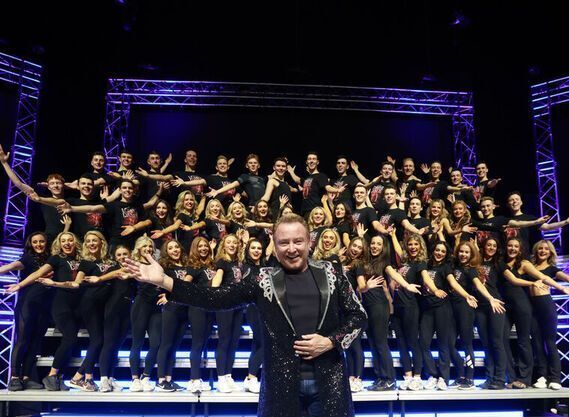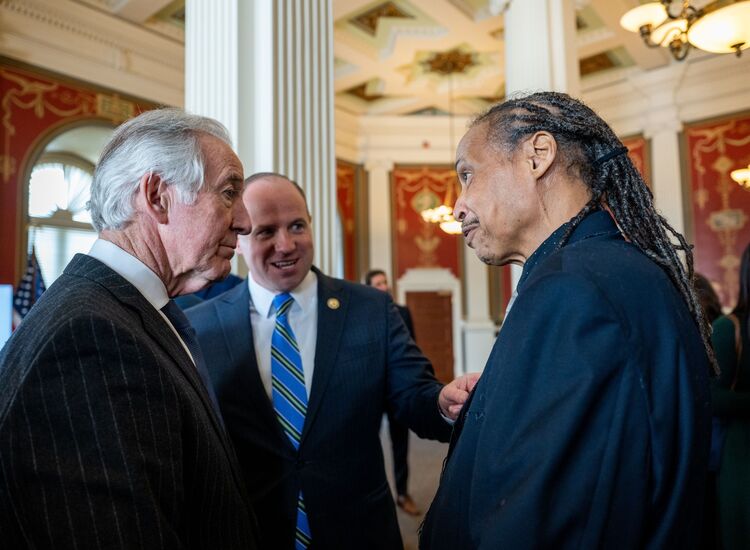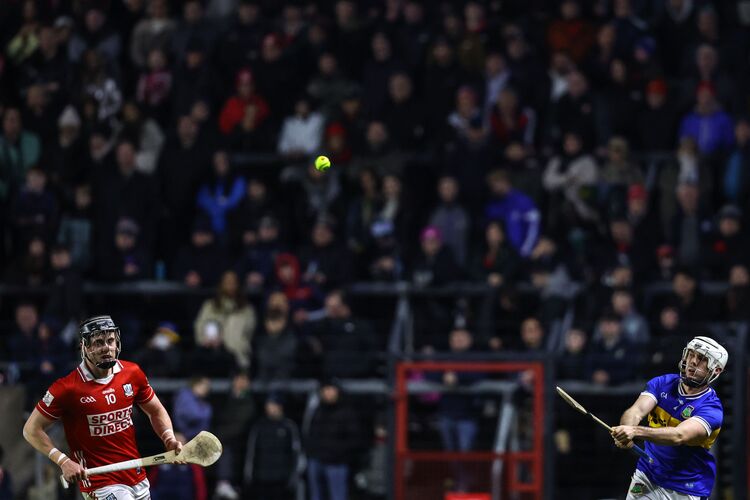Ireland's goalkeeper Darren Randolph helping to clear tennis balls from the field on Tuesday. INPHO/JAMES CROMBIE
By Irish Echo Staff
The Football Association of Ireland was charged Thursday by the Union of European Football Associations in relation to an incident during Tuesday’s game against Georgia at the Aviva Stadium in Dublin. The Group D Qualifying match for Euros 2020 was held up for three minutes late in the first half after fans threw tennis balls onto the field in a protest at the FAI’s controversial outgoing CEO, John Delaney, being retained in a new role by the organization.
The home side was about to take a free kick when the protest took place. After stewards cleared the dozens of tennis balls, Conor Hourihane scored the only goal of the game from the kick.
Hearing reports of a tennis-ball protest beforehand, Ireland manager Mick McCarthy asked fans not to break the players’ concentration during the game.
In Ireland’s game away in Gibraltar last Saturday, fans made a peaceful protest by unfurling a banner with a message critical of the former CEO.
The Aviva Stadium case will be dealt with by the UEFA Control, Ethics and Disciplinary panel on May 16.
The tennis-balls incident divided RTÉ’s pundits watching the game in the studio with former internationals Ronnie Whelan and Damien Duff criticizing the action and the third, Richie Sadlier, defending it, by saying "These fans are angry and disillusioned for very legitimate reasons.”
Former panelist Eamon Dunphy weighed on that disagreement in his column in the Irish Daily Star today.
“I noted that Damien Duff and Ronnie Whelan were very strong in their condemnation of the protest. They are two great footballing people, who could understand how throwing tennis balls on to the pitch was counter-productive,” he wrote.
"As for Richie Sadlier, he made an eejit of himself. I understand Richie is trying to make a name for himself, not that he is doing a great job in that department.”
Dunphy added: "If people wanted to protest, they should have stayed away from the match. There are plenty of things to do - sing, chant, hold up banners - but don't interfere with the actual game.”
Delaney, the person at the center of the storm, stepped down as CEO after 14 years amid increased public scrutiny of the FAI’s finances. He took on a newly created role, executive vice-president, with a substantial decrease in salary. He’s due to testify before the Dáil committee in coming days.
The Irish Times said in an editorial: “Delaney has claimed over the years that he delivered for Irish football. The debate around that contention will rumble on but what is obvious is that Irish football has delivered for Delaney. Aside from a basic salary that comfortably exceeded those of his counterparts at Ireland’s other major sporting organizations, he has received substantial additional benefits, some of which are only coming to light now.
“The FAI is a large organization receiving millions of euro in direct public support and many more in the form of indirect subsidies, capital grant aid to its clubs and affiliates and substantial funding of specific posts and programs. In return, the public – who ultimately pay for all of this – have a right to expect far higher standards.
“Delaney has been the public face of the FAI for 15 years but when controversy has engulfed him – as it has so often – he has insisted that he is answerable to the board of the association.
“That he will no longer be a member of that board is one of the few positives to emerge in recent days, nothwithstanding the unorthodox game of executive musical chairs which has resulted in him being appointed to a newly created senior role within the FAI.
“The question remains, however: who do the 10 other board members answer to. Some have been there for as long as Delaney has been CEO and have come to be regarded as close allies. A majority were in situ when his last contract was agreed and, subsequently, when he is said to have lent his employer €100,000.”









